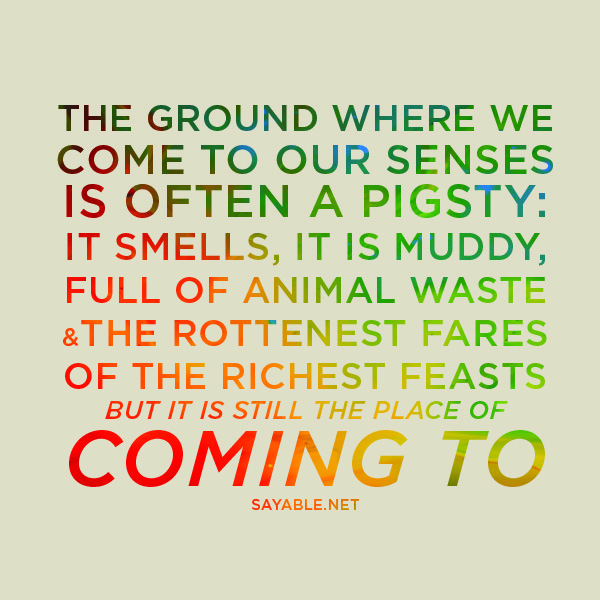The Good Ground
It is a good place where one can say, "I do not trust you," to God. These are the places where God becomes real. Realer than theology books and good sermons, more real than dark nights and soul talk, realer than heaven and hell and all the variances in between. To stand barefoot by the burning bush of your life—or the Spirit—and to say, I do not, I can not, even maybe I will not. These can be good places.
There is a realness to the God of that moment, a reckoning with all the ways in which we have felt the realness of life hurt and bruise us. It is, in some ways, the moment of coming to our senses. It is touch, sight, sound, scent—the aching reality that this is hard, so hard. Harder than it was ever meant to be, and yet, the only way we could come at last home.
Whenever I find myself in the company of one who doubts, I know I am on hallowed ground. Holy ground. I want to take off my shoes and stand there with them for a while. The ground is often a pigsty: it smells, it is muddy, full of animal waste and the rottenest fares of the richest feasts, but it is the place of coming to.
To say, "I do not believe, but God, I want to," can be the first step toward coming home.

